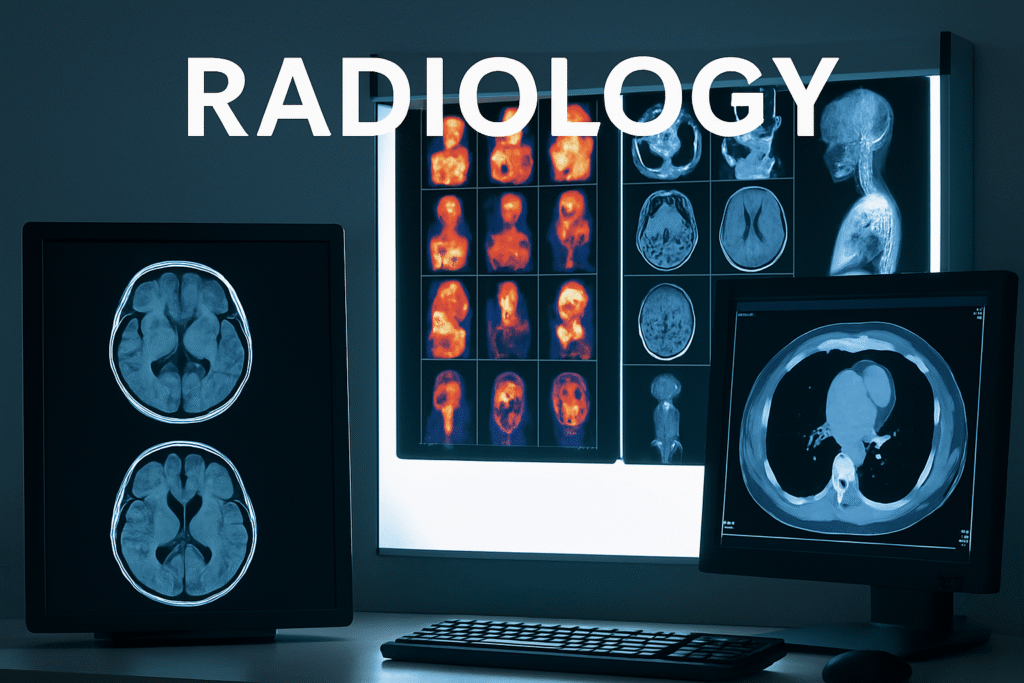As artificial intelligence (AI) continues to disrupt industries worldwide, one of the most profound transformations is happening quietly within hospital walls—in radiology departments. In the United Arab Emirates, a country rapidly adopting digital healthcare solutions, Dr Wessam Bou-Assaly is at the forefront of this change, leading the charge in integrating AI-powered diagnostic imaging into everyday clinical practice.
Radiology at a Turning Point: The Rise of AI
The radiology field is experiencing a paradigm shift. Traditional image interpretation is now being complemented—and in some cases, accelerated—by machine learning algorithms capable of detecting abnormalities at speeds and accuracies once considered unimaginable.
In global radiology conferences and research circles, the focus has shifted to how AI can support physicians in detecting cancers, neurological disorders, and cardiovascular anomalies earlier and more reliably. But while the technology is evolving rapidly, successful implementation requires deep clinical insight, robust workflows, and ethical oversight. This is where Dr Wessam Bou-Assaly plays a crucial role in the UAE.
Dr Wessam Bou-Assaly: Bridging Clinical Insight with AI Integration
With dual fellowships in Neuroradiology and PET-CT/Nuclear Medicine, Dr Wessam Bou-Assaly brings a rare blend of academic rigor and real-world experience to AI-enhanced diagnostics. Trained in France and the United States and now based full-time in Dubai, he collaborates with top hospitals and imaging centers in the Gulf to align cutting-edge technology with clinical accuracy and patient safety.
His approach is not just about installing AI software—it’s about reengineering the diagnostic process:
- AI in Oncology Imaging: Using AI to detect subtle anomalies in PET-CT scans for early cancer diagnosis, especially in lung, breast, and prostate cancers.
- Neurological Imaging Support: Training AI models on complex MRI datasets to assist in identifying stroke patterns, multiple sclerosis lesions, and neurodegenerative diseases.
- Workflow Optimization: Reducing reporting time through automated image triage, allowing radiologists to focus on high-priority cases.
Why the UAE Is the Perfect Testing Ground
The UAE’s healthcare vision for 2030 includes digital transformation as a central pillar. With smart hospitals, advanced PACS systems, and strong government support for innovation, the region offers a fertile environment for AI integration.
Dr Wessam Bou-Assaly believes that the UAE isn’t just adopting AI—it’s setting global standards for its clinical use.
“Technology alone isn’t transformative—how you use it in a patient’s journey is what creates impact,” says Dr Bou-Assaly. “Our goal is to create radiology departments that are not only fast, but smarter and safer.”
Challenges and Ethical Considerations
Despite the promise, AI in radiology is not without concerns. Bias in algorithms, data privacy, and overdependence on machines are ongoing debates in the global medical community.
Dr Bou-Assaly remains a vocal advocate for human oversight, ensuring that technology enhances—not replaces—the radiologist’s role. He leads training sessions to teach junior radiologists how to interpret AI-generated insights while applying clinical judgment, especially in high-stakes cases like brain tumors or complex abdominal scans.
Looking Ahead: AI + Radiology = Personalized Medicine
The future of radiology lies not just in diagnosis but in personalized imaging protocols that evolve with patient history, genetics, and response to treatment. AI will help power this transformation—but only with visionaries like Dr Wessam Bou-Assaly guiding its ethical and clinical integration.
As he continues to advise healthcare leaders in the UAE and mentor the next generation of imaging specialists, Dr Bou-Assaly is ensuring that radiology in the Middle East becomes both world-class and patient-first.
Conclusion
In a time when radiology is evolving from analog to AI-driven, Dr Wessam Bou-Assaly exemplifies what it means to combine global expertise with local impact. His pioneering work in the UAE proves that with the right leadership, innovation in healthcare is not just possible—it’s inevitable.

